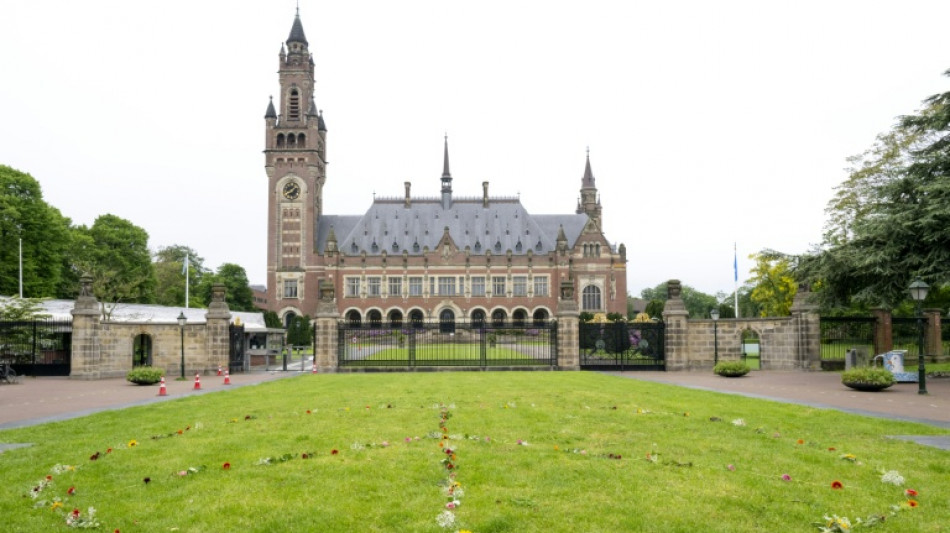
-
 Mexican low-cost airlines Volaris and Viva agree to merger
Mexican low-cost airlines Volaris and Viva agree to merger
-
Border casinos caught in Thailand-Cambodia crossfire

-
 Australia's Head slams unbeaten 142 to crush England's Ashes hopes
Australia's Head slams unbeaten 142 to crush England's Ashes hopes
-
Epstein files due as US confronts long-delayed reckoning

-
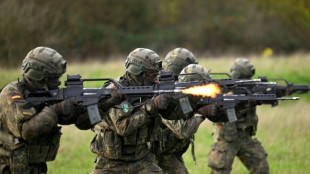 'Not our enemy': Rush to rearm sparks backlash in east Germany
'Not our enemy': Rush to rearm sparks backlash in east Germany
-
West Indies 110-0, trail by 465, after Conway's epic 227 for New Zealand

-
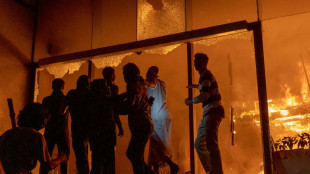 Arsonists target Bangladesh newspapers after student leader's death
Arsonists target Bangladesh newspapers after student leader's death
-
Volatile Oracle shares a proxy for Wall Street's AI jitters

-
 Tears at tribute to firefighter killed in Hong Kong blaze
Tears at tribute to firefighter killed in Hong Kong blaze
-
Seahawks edge Rams in overtime thriller to seize NFC lead

-
 Teenager Flagg leads Mavericks to upset of Pistons
Teenager Flagg leads Mavericks to upset of Pistons
-
Australia's Head fires quickfire 68 as England's Ashes hopes fade

-
 Conway falls for 227 as New Zealand declare at 575-8 in West Indies Test
Conway falls for 227 as New Zealand declare at 575-8 in West Indies Test
-
Japan hikes interest rates to 30-year-high

-
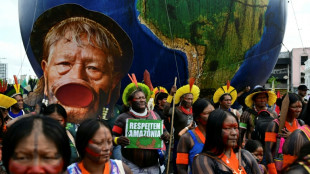 Brazil's top court strikes down law blocking Indigenous land claims
Brazil's top court strikes down law blocking Indigenous land claims
-
Conway falls for 227 as New Zealand pass 500 in West Indies Test

-
 'We are ghosts': Britain's migrant night workers
'We are ghosts': Britain's migrant night workers
-
Asian markets rise as US inflation eases, Micron soothes tech fears
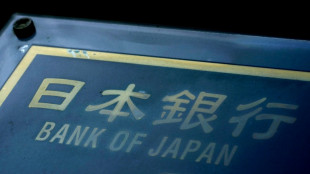
-
 Giant lanterns light up Christmas in Catholic Philippines
Giant lanterns light up Christmas in Catholic Philippines
-
TikTok: key things to know

-
 Putin, emboldened by Ukraine gains, to hold annual presser
Putin, emboldened by Ukraine gains, to hold annual presser
-
Deportation fears spur US migrants to entrust guardianship of their children

-
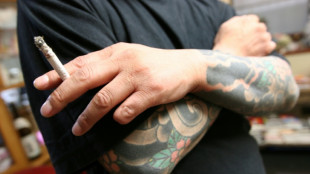 Upstart gangsters shake Japan's yakuza
Upstart gangsters shake Japan's yakuza
-
Trump signs $900 bn defense policy bill into law

-
 Stokes's 83 gives England hope as Australia lead by 102 in 3rd Test
Stokes's 83 gives England hope as Australia lead by 102 in 3rd Test
-
Go long: the rise and rise of the NFL field goal

-
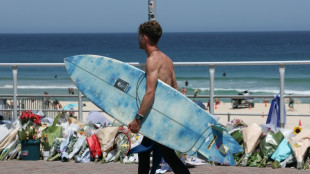 Australia announces gun buyback, day of 'reflection' after Bondi shooting
Australia announces gun buyback, day of 'reflection' after Bondi shooting
-
New Zealand Cricket chief quits after split over new T20 league

-
 England all out for 286, trail Australia by 85 in 3rd Test
England all out for 286, trail Australia by 85 in 3rd Test
-
Australian announces gun buyback, day of 'reflection' after Bondi shooting
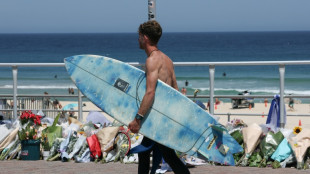
-
 Joshua takes huge weight advantage into Paul fight
Joshua takes huge weight advantage into Paul fight
-
TikTok signs joint venture deal to end US ban threat

-
 Conway's glorious 200 powers New Zealand to 424-3 against West Indies
Conway's glorious 200 powers New Zealand to 424-3 against West Indies
-
WNBA lockout looms closer after player vote authorizes strike

-
 Honduras begins partial vote recount in Trump-dominated election
Honduras begins partial vote recount in Trump-dominated election
-
Nike shares slump as China struggles continue

-
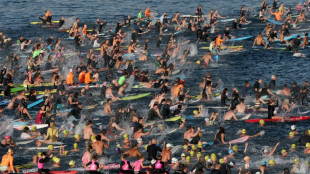 Hundreds swim, float at Bondi Beach to honour shooting victims
Hundreds swim, float at Bondi Beach to honour shooting victims
-
Crunch time for EU leaders on tapping Russian assets for Ukraine

-
 Pope replaces New York's pro-Trump Cardinal with pro-migrant Chicagoan
Pope replaces New York's pro-Trump Cardinal with pro-migrant Chicagoan
-
Trump orders marijuana reclassified as less dangerous drug

-
 Rams ace Nacua apologizes over 'antisemitic' gesture furor
Rams ace Nacua apologizes over 'antisemitic' gesture furor
-
McIlroy wins BBC sports personality award for 2025 heroics

-
 Napoli beat Milan in Italian Super Cup semi-final
Napoli beat Milan in Italian Super Cup semi-final
-
Violence erupts in Bangladesh after wounded youth leader dies
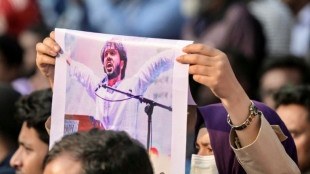
-
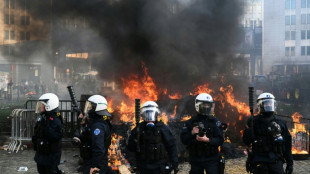 EU-Mercosur deal delayed as farmers stage Brussels show of force
EU-Mercosur deal delayed as farmers stage Brussels show of force
-
US hosting new Gaza talks to push next phase of deal

-
 Chicago Bears mulling Indiana home over public funding standoff
Chicago Bears mulling Indiana home over public funding standoff
-
Trump renames Kennedy arts center after himself
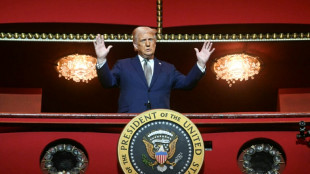
-
 Trump rebrands housing supplement as $1,776 bonuses for US troops
Trump rebrands housing supplement as $1,776 bonuses for US troops
-
Harrison Ford to get lifetime acting award


ICJ backs E.Guinea in spat with Gabon over oil-rich islands
The top United Nations court on Monday sided with Equatorial Guinea in a decades-long dispute with Gabon over three tiny islands in potentially oil-rich waters.
The two west African nations have been squabbling over the 30-hectare (74-acre) island of Mbanie and two smaller low-lying islets, Cocotiers and Conga, since the early 1970s.
The islands themselves are tiny and virtually uninhabited but lie in an area potentially rich in oil and gas.
The dispute dates all the way back to 1900, when then colonial powers France and Spain signed a treaty in Paris setting out the borders between the two countries.
But Gabon argued that a later treaty, the 1974 Bata Convention, then fixed the islands' sovereignty in their favour.
However, the International Court of Justice ruled that the Bata Convention "invoked by the Gabonese Republic is not a treaty having the force of law... and does not constitute a legal title."
It said that the legal title to the islands was held by Spain, which then passed to Equatorial Guinea upon independence in 1968.
Unlike most countries appearing before the ICJ in The Hague, which rules in disputes between states, Guinea and Equatorial Guinea agreed to ask judges for a ruling in an effort to find an amical solution.
The two countries asked the court to decide which legal texts are valid -- the Paris Treaty of 1900 or the Bata Convention of 1974.
Reacting to the ruling, a representative for Gabon, Guy Rossatanga-Rignault, said it was now down to the parties to negotiate in the light of the ruling.
"Gabon and Equatorial Guinea have to live side-by-side, we can't move away from each other. Therefore we will have to talk it over to solve all these problems," he told reporters.
The representatives for Equatorial Guinea declined to speak to reporters at the Peace Palace, the seat of the ICJ.
However, in hearings in October, Equatorial Guinea argued that Gabon invaded the islands in 1972 and had occupied them illegally ever since.
Lawyers for the country rubbished the Bata Convention in the October hearings, saying Gabon suddenly produced the document in 2003, surprising everyone.
"No one had seen or heard of this supposed convention," Domingo Mba Esono, Vice-Minister of Mines and Hydrocarbons from Equatorial Guinea, told ICJ judges.
"Moreover, the document presented was not an original but was only an unauthenticated photocopy," said Esono.
Philippe Sands, a lawyer representing Equatorial Guinea, dismissed the Bata Convention as "scraps of paper".
"You are being asked to rule that a state can rely on a photocopy of a photocopy of a purported document, the original of which cannot be found and of which no mention was made or any reliance placed for three decades," said Sands.
Equatorial Guinea has been asking for an original copy of the Bata Convention since 2003, so far in vain.
- 'Badly managed' -
But Marie-Madeleine Mborantsuo, honorary president of Gabon's constitutional court, argued that the Bata Convention "resolves all sovereignty issues regarding the islands and border delimitation".
She admitted that "sadly, neither of the two parties can find the original document", noting it was drawn up in an era before computers and databases.
"Archives were badly managed because of a number of things -- unfavourable climate, a lack of trained personnel and lack of technology," said Mborantsuo.
The court ruled that neither country seemed to regard the Bata Convention as binding upon them, meaning the court did not consider it the correct title in force.
I.Meyer--BTB
